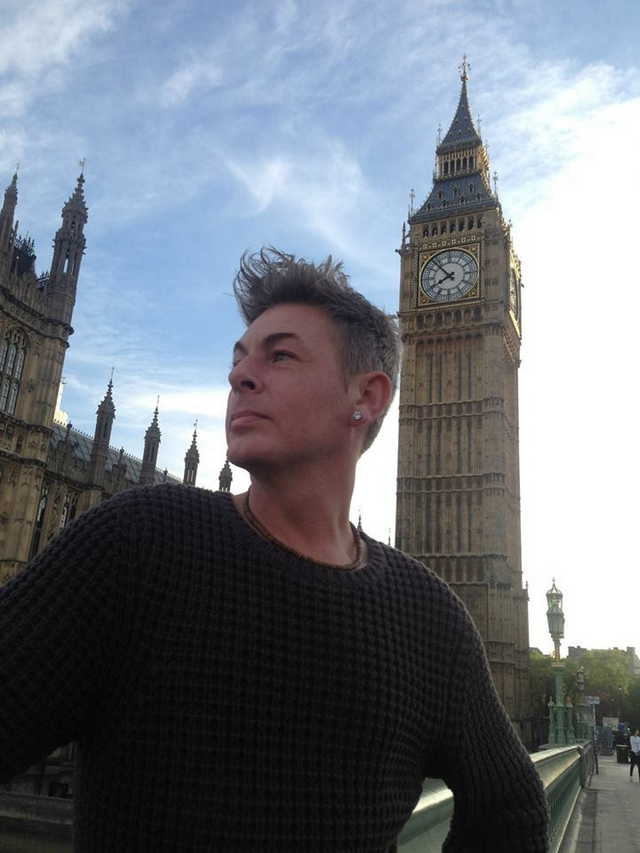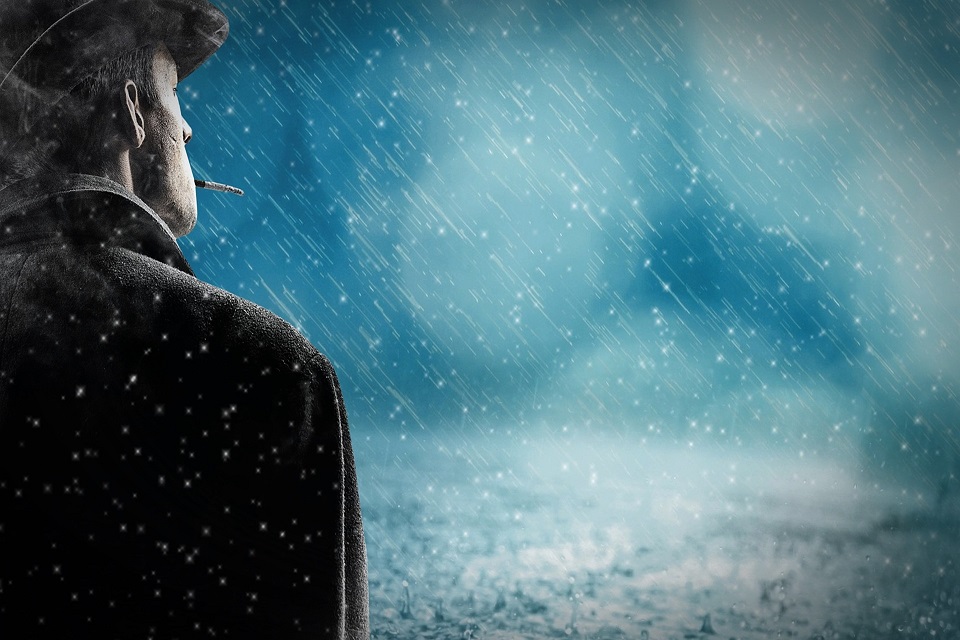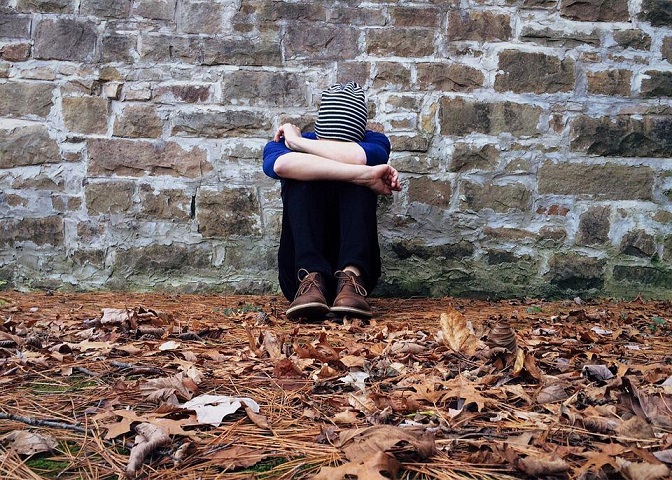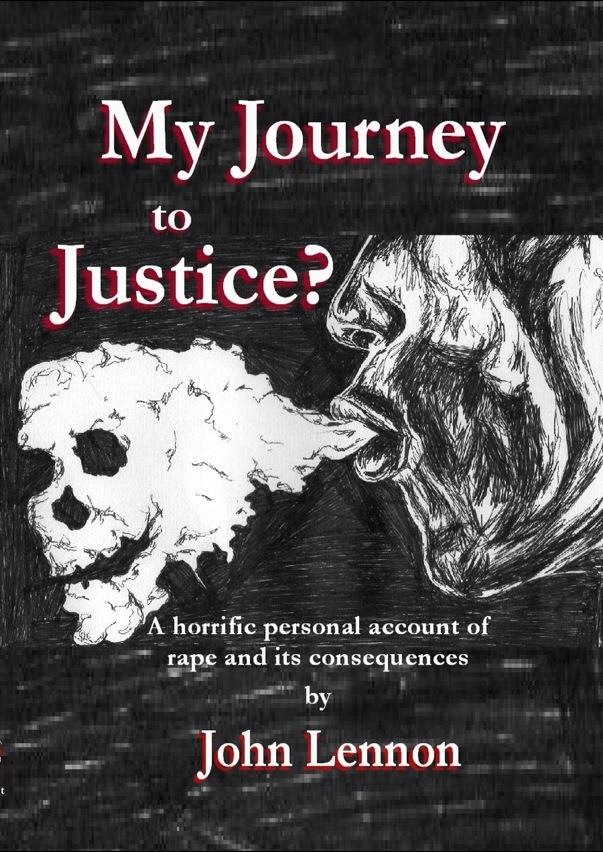“Why should a victim of crime feel stigmatised or ashamed of what’s happened to them? I can understand a child feeling that way – they’re manipulated into it.” “He was mixed race, a good looking guy. He said he liked me and asked me out for a drink. I said yes, I was flattered”. The Prisma’ memoirs.

Noelia Ceballos Terrén
After four years John Lennon, 44, from Dublin, can still remember every detail of that Saturday in August 2010. A man came into his pet grooming business in Manchester and struck up a conversation. “He was kind, I wasn’t scared or intimidated”, says Lennon.
The man, 20, came back again a week later.
After chatting for a while, the ‘monster’ – as Lennon now refers to him – asked if he could come along to an appointment John had with a friend. He stayed at John’s house for the first time that night.
The next day, things began to get increasingly uncomfortable. “He wanted to come with me again, to a dog show. When we got there he started introducing himself to everyone as my boyfriend”.
His attitude didn’t sit well with John, who now, looking back, can see other things that didn’t add up at the time: “He’d said he was an actor and went to introduce me to an actress who was in the audience. It was pretty clear she didn’t have a clue who he was”. After that the man came to the house more frequently, staying for longer periods.
He was settling himself into the house little by little, and would make excuses as to why he couldn’t go back to his own flat. Anxiously Lennon recalls; “I just wanted to get rid of him, but I couldn’t”.
Out of control
Finally on the Tuesday his ‘guest’ announced that he’d be leaving the next day and was going to cook the two of them a Jamaican meal. He put the music on full blast while he was cooking. “You couldn’t hear a thing. I asked him to turn it down but he refused, got angry and started hitting me”.
 Alarm bells started ringing in John’s head, he was shocked. Things had gone from bad to worse and he needed help – he couldn’t stay alone with this man. So he rang a friend to see if she could join them for dinner. As soon as she arrived the ‘monster’s’ behaviour went back to normal: he was “kind and calm”.
Alarm bells started ringing in John’s head, he was shocked. Things had gone from bad to worse and he needed help – he couldn’t stay alone with this man. So he rang a friend to see if she could join them for dinner. As soon as she arrived the ‘monster’s’ behaviour went back to normal: he was “kind and calm”.
But it didn’t last. “When my friend left at 10 pm his attitude turned again. I just wanted to go to sleep, but suddenly he got into my bed before I could”.
John stayed in the living room, confused and angry. It was then that he realised the £400 he’d hidden in a corner in the kitchen for rent had disappeared. He couldn’t take it anymore. “I went up to the bedroom, woke him up, and accused him of taking the money. I said if he didn’t leave I’d call the police. His reaction was to rape me”.
Limitless brutality
“All rapes are violent, but this was extreme violence”, stressed John, one more victim of male sexual abuse.
He passed out during the ordeal so can’t be sure of every detail of the attack, but he thinks he was raped three times. But he will always remember how the ‘monster’ strangled, punched, and beat him. The physical scars stayed with him for months, the worst being on his penis where his attacker bit him.
 The first image that came to him when he started to come round was of his puppy being brutally attacked. To this day he doesn’t know how he found the strength but he managed to hit his attacker, giving him just enough time to grab his puppy and run as fast as he could.
The first image that came to him when he started to come round was of his puppy being brutally attacked. To this day he doesn’t know how he found the strength but he managed to hit his attacker, giving him just enough time to grab his puppy and run as fast as he could.
The torment of justice
John called the police straight away to report the robbery, and later went on to admit that he’d been raped. It was the start of what would be one of his worst years.
For months he went through a legal process in which he, as a victim, felt misunderstood. “In rape cases it’s actually the victim who’s being judged”, he says.
His whole life was put under scrutiny in court, from medical reports to every detail of his childhood. Defence lawyers labelled him “a liar”, saying he was “a sadomasochist who’d enjoyed it”, he remembers, still filled with indignation.
John admits that for three whole months; “every day in court was horrific. I could hardly get out of bed in the morning”.
In the end the verdict went in his favour and the ‘monster’ received a four year sentence. A year later he was released from prison, but John found out that he’d been readmitted for other offences.
 With head held high
With head held high
John had a normal upbringing in Dublin. He was brought up in a supportive family environment, giving him the confidence that he’d never face rejection because of his sexuality. He had his first boyfriend when he was 15. He’s proud of who he is and feels lucky to have been brought up in such an atmosphere of positivity. “I was never bullied and I’ve always been really confident”.
It was so positive that he never would have imagined men could be victims of rape – least of all himself.
But it happened to him. He’d just come out of a four year relationship when his name was added to the list of men who are invisible to society for the most part. “The break-up had a big effect on me. But I carried on with my life: business was going well, I was surrounded by friends and family. But maybe I was vulnerable as I’d just lost my partner”.
The attack left him with post traumatic stress disorder. He is doing all he can to recover from it and has fewer panic attacks than he used to, initially he would have panic attacks on a daily basis.
John describes how he was “paralysed by fear every day”, but from the outset he insisted on removing two words from his vocabulary: guilt and shame.
 “Why should a victim of crime feel stigmatised or ashamed of what’s happened to them? I can understand a child feeling that way – they’re manipulated into it. But that’s why I’m making my story public and refusing to hide my identity”.
“Why should a victim of crime feel stigmatised or ashamed of what’s happened to them? I can understand a child feeling that way – they’re manipulated into it. But that’s why I’m making my story public and refusing to hide my identity”.
Not all rape victims show such strength and defiance in the aftermath of such trauma. And even John, with all his determination, can’t escape the social stigma.
It’s had an effect on potential relationships even though he was in no way responsible for what happened to him.
“I was seeing a great guy about four months ago. We had a couple of dates and I still hadn’t told him about my book. Things were going really well between us so I decided to tell him. But he couldn’t cope with the fact that I’d been a victim”.
John is still in Manchester and refuses to let the attack in his past stop him from enjoying life in the present. Because, as he said, “there is life after rape”.
The Prisma’ memoirs. June, 2014.
(Translated by Claudia Rennie – Email: claudiarennie@gmail.com) – Photos: Pixabay. (The two photos of the interviewee were supplied by him and authorised for publication.)












.jpg)












